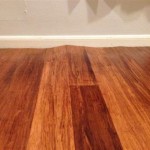Laying Vinyl Flooring On Concrete: A Comprehensive Guide
Vinyl flooring has become increasingly popular due to its durability, affordability, and aesthetic versatility. A common substrate for vinyl flooring is concrete, often found in basements, garages, and even living areas. Installing vinyl flooring on concrete requires careful preparation and specific techniques to ensure a successful and long-lasting installation. This article will delve into the process of laying vinyl flooring on concrete, providing a comprehensive guide for homeowners and DIY enthusiasts.
1. Preparing the Concrete Subfloor
The success of any vinyl flooring installation hinges on the condition of the subfloor. A well-prepared concrete subfloor is essential for a smooth, level, and stable surface. The following steps are crucial for preparing the concrete subfloor for vinyl flooring:
- Cleaning the Subfloor: Begin by thoroughly cleaning the concrete surface. Remove any dirt, debris, dust, and residues using a stiff broom, vacuum cleaner, or a damp mop. Pay close attention to corners and crevices where dirt tends to accumulate.
- Addressing Cracks and Unevenness: Inspect the concrete for cracks, holes, or unevenness. Small cracks can be filled with a patching compound or epoxy. Larger cracks may require professional repair. Unevenness can be addressed with a self-leveling compound, which self-levels to create a smooth and even surface.
- Moisture Barrier: Concrete surfaces can be susceptible to moisture. To prevent moisture from damaging the vinyl flooring, a moisture barrier is essential. This can be achieved using a vapor barrier, a moisture-resistant underlayment, or a combination of both.
2. Choosing the Right Vinyl Flooring
Vinyl flooring comes in a wide variety of styles, designs, and thicknesses. Selecting the right type of vinyl flooring for your concrete subfloor is crucial for achieving the desired aesthetic and durability. Consider the following factors:
- Vinyl Sheet vs. Vinyl Tiles: Vinyl sheet flooring is a single, continuous piece of vinyl, while vinyl tiles are individual pieces that can be installed like tiles. Sheet vinyl is typically cheaper and easier to install but has limited design options. Vinyl tiles offer greater design flexibility and can be easily replaced if damaged.
- Thickness: Thicker vinyl flooring provides better sound insulation and cushioning, while thinner options are more affordable. Consider the level of comfort and noise reduction you desire when choosing the thickness.
- Wear Layer: The wear layer is the top layer of the vinyl flooring that protects it from scratches and wear. A thicker wear layer provides greater durability and longevity, making it ideal for high-traffic areas.
3. Installing the Vinyl Flooring
Once the concrete subfloor is prepared and the vinyl flooring is chosen, the installation process can begin. The specific installation method will vary depending on the type of vinyl flooring chosen. Here are general steps for installing vinyl flooring on concrete:
- Laying the Underlayment: If using an underlayment, lay it down over the prepared concrete subfloor. Ensure the underlayment is properly installed according to the manufacturer's instructions.
- Measuring and Cutting: Measure the area to be covered and cut the vinyl flooring accordingly. Use a sharp utility knife or a flooring cutter to ensure clean cuts.
- Installing the Vinyl Flooring: Depending on the type of vinyl flooring, the installation process will vary. For sheet vinyl, use adhesive to secure the vinyl flooring to the subfloor. For vinyl tiles, follow the manufacturer's instructions for installation, which may involve adhesive, interlocking tabs, or a click-and-lock system.
- Trim and Finish: Once the vinyl flooring is installed, trim any excess material around the edges. Install baseboards or moldings to create a finished look and protect the edges of the flooring.
Installing vinyl flooring on concrete can be a rewarding DIY project. By following these guidelines and carefully preparing the concrete subfloor, you can ensure a successful and long-lasting installation that enhances the beauty and functionality of your space.

How To Prepare A Concrete Floor For Vinyl Flooring Parrys

Tips For Installing Vinyl Plank Over Concrete Floors Lemon Thistle

Easy Ways To Install Vinyl Plank Flooring On Concrete

How To Install Vinyl Or Laminate Floors In A Basement Over Concrete Slab

How To Lay Vinyl Sheet Flooring On Concrete

How To Install Vinyl Plank Flooring On Concrete Step By Guide

Vinyl Plank Flooring On Uneven Concrete

How To Install Vinyl Flooring On Concrete Floor Ers

Tips For Installing Vinyl Plank Over Concrete Floors Lemon Thistle

How To Install Vinyl Plank Flooring On Concrete Whole Cabinet Supply
Related Posts








